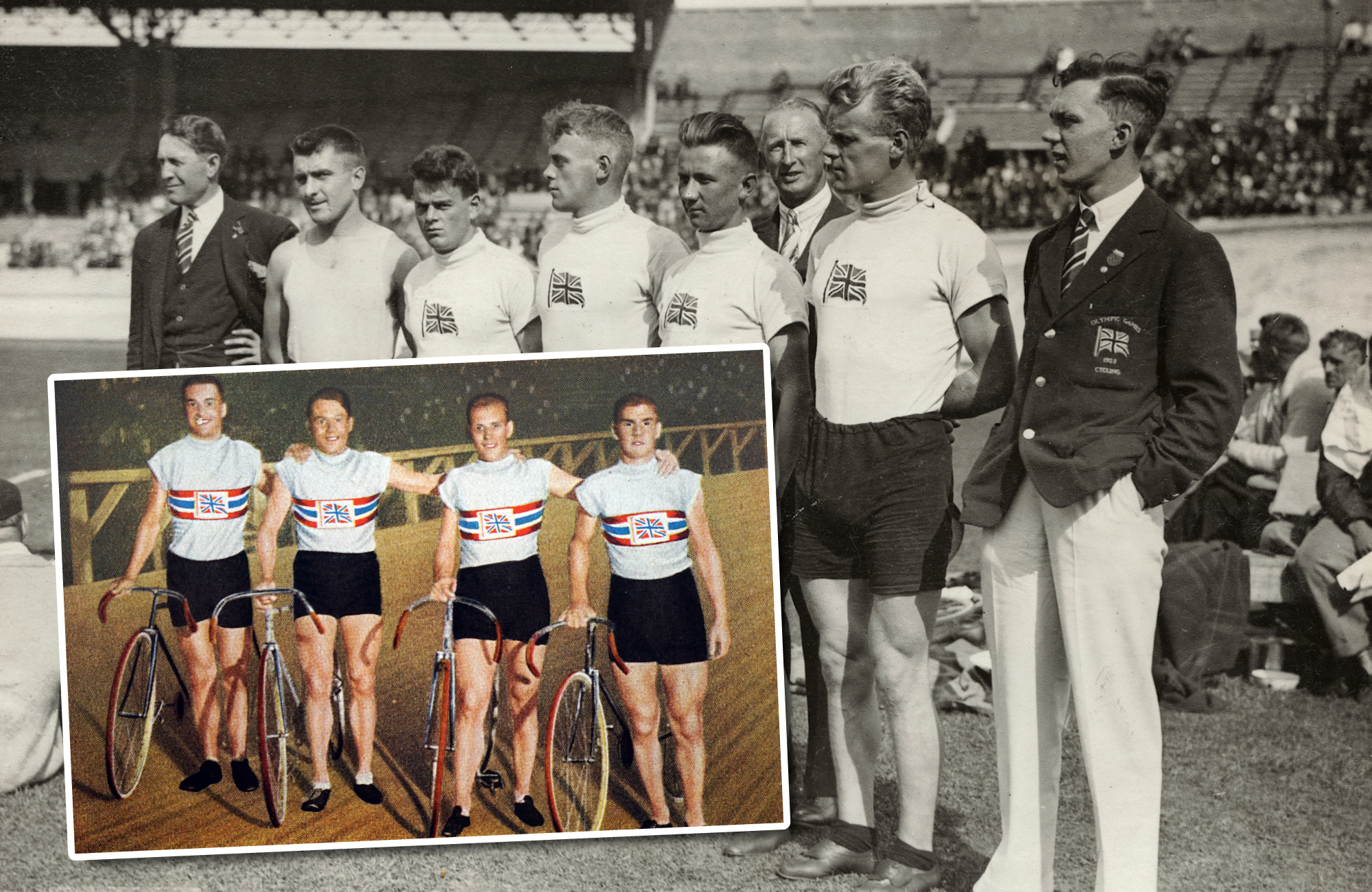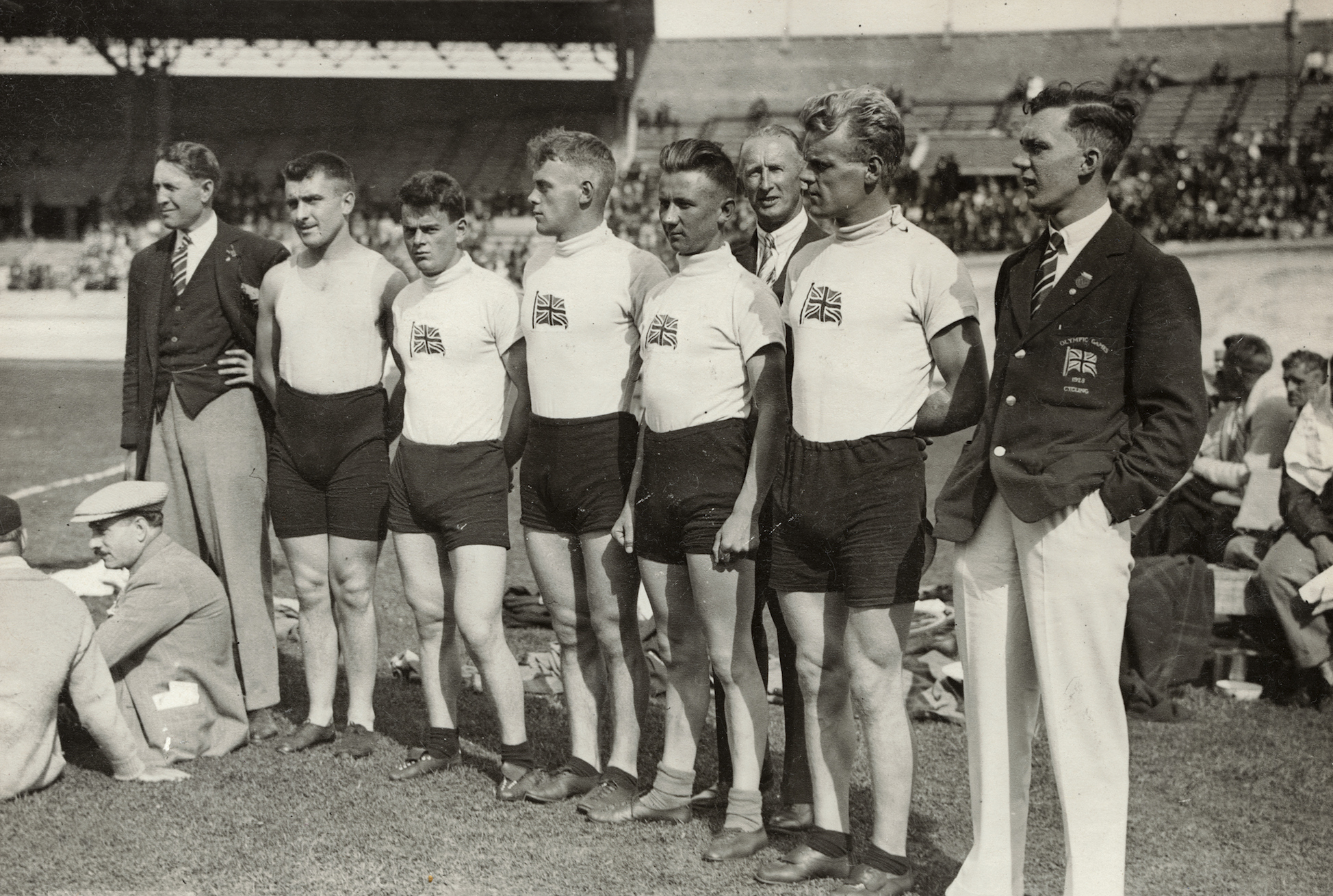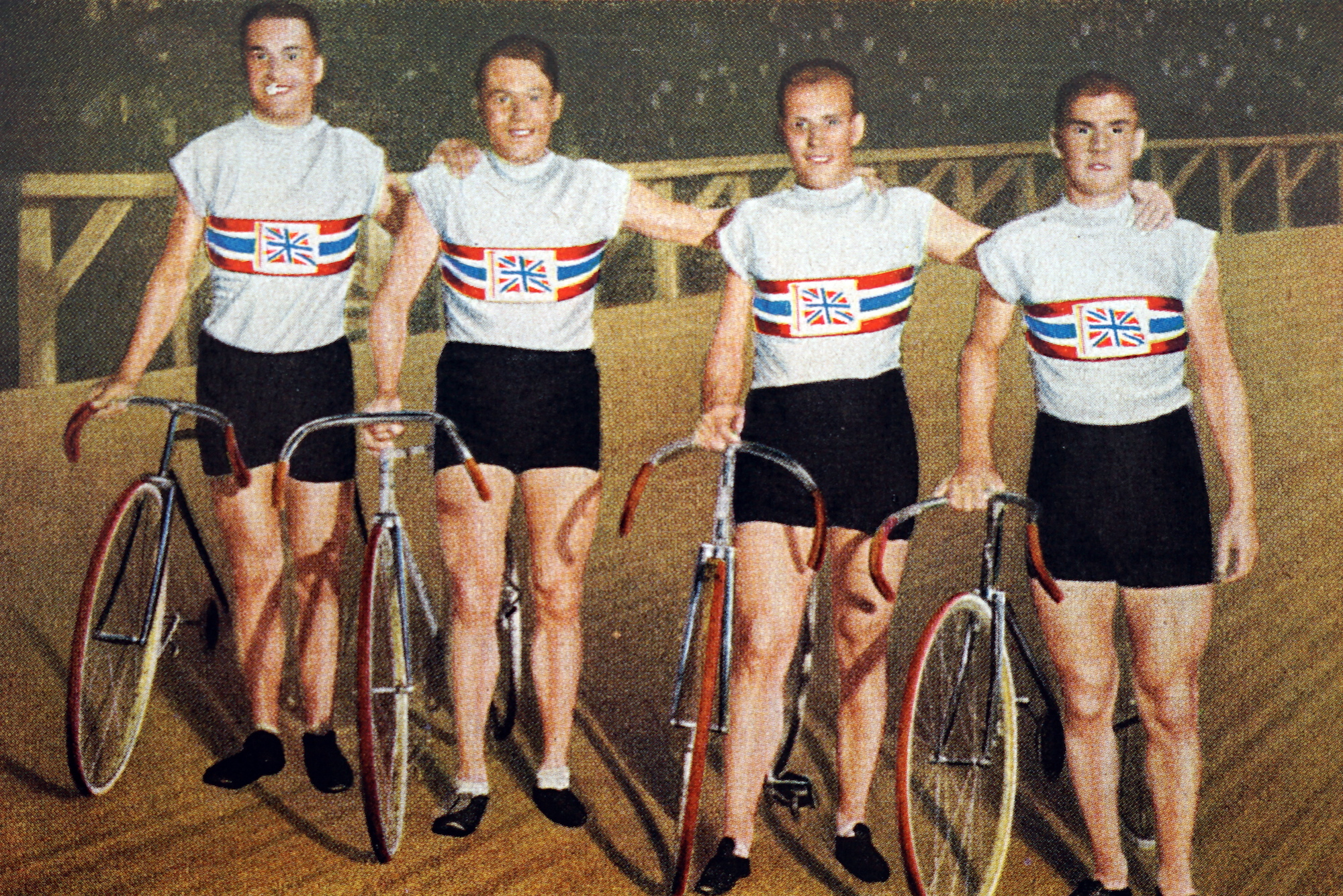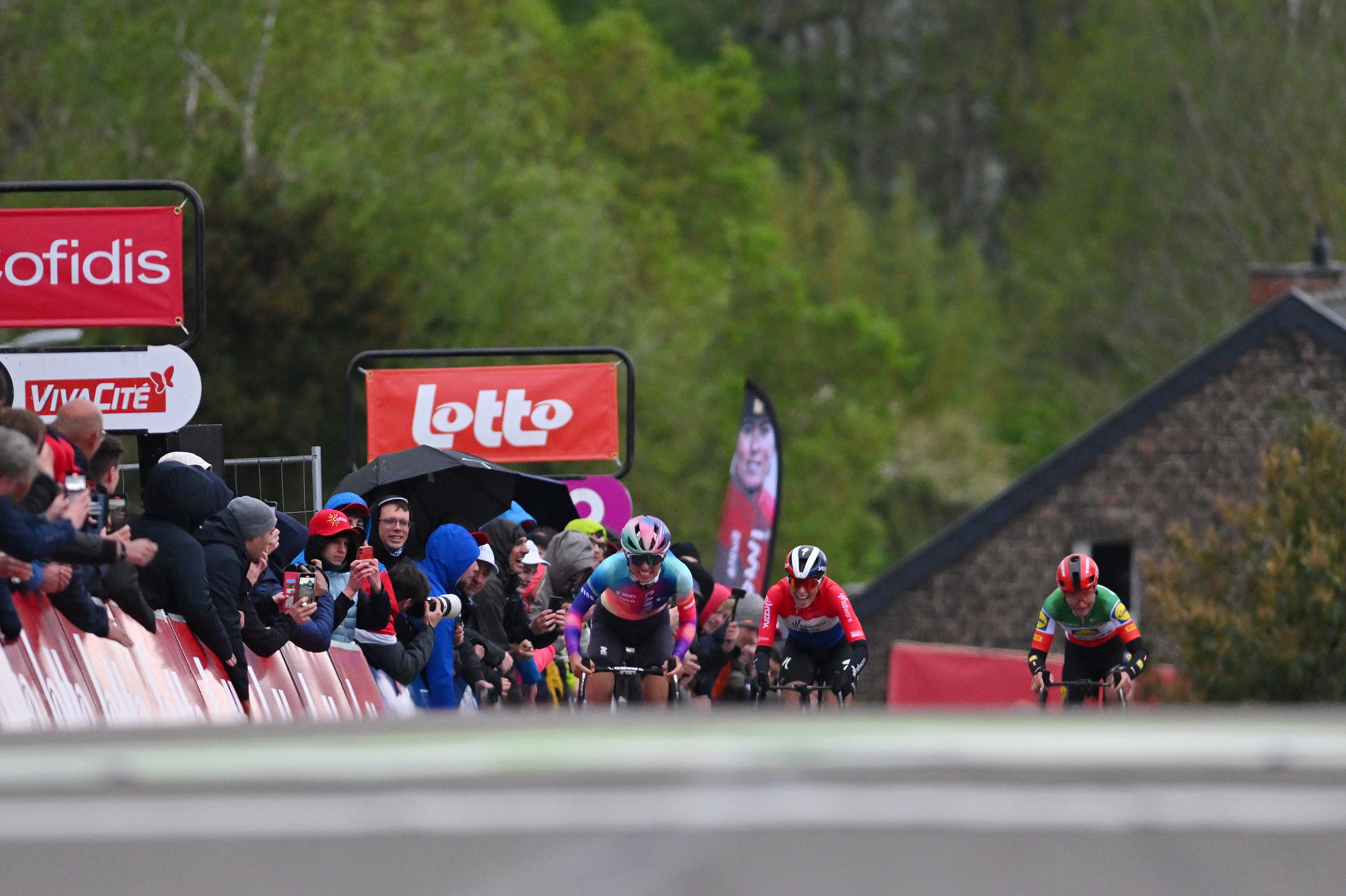Remembering Britain's best ever men's Olympic road race result - but should it have been gold?
Britain’s finest ever result in the Olympic men’s road race came nearly 100 years ago, courtesy of the great Frank Southall. But the Londoner was left wondering whether his silver medal should actually have been gold

Frank Southall (Getty)

While Team GB’s gold-tinted Olympic track exploits are well documented, the road race events haven’t yielded quite the same haul of metalwork.
The women have given us the most to shout about, with gold from Nicole Cooke at Beijing in 2008, followed by Lizzie Deignan’s silver behind Marianne Vos in London 2012 — in an event that was only introduced to the Games in 1984.
In contrast, the men have never tasted road race gold. Scroll back through the years (which, in four-year cycles are eaten up quickly) and you’ll find Max Sciandri’s bronze from Atlanta ’96 and, 40 years prior to that in 1956, a bronze from Alan Jackson. But you need to go all the way back to 1928 before alighting on Frank Southall’s silver medal from the Amsterdam Games — Britain’s best result in the event.
In fact, Southall —perhaps the pre-eminent rider of his day — believed, as did those around him, that he was cheated out of gold.
Great Britain had enjoyed a promising start to Olympic road racing. The first modern Olympics was held in Athens in 1896, where Edward Battell, a servant at the British Embassy in Greece, won a bronze medal.
>>> Subscriptions deals for Cycling Weekly magazine
The road race was left out of the Olympics from after that first Games until Amsterdam 1928. But in the intervening years Britain stamped its mark on other events, winning medals in the team pursuit, sprint, and time trial team events.
Get The Leadout Newsletter
The latest race content, interviews, features, reviews and expert buying guides, direct to your inbox!
‘Southall margin’
When 1928 rolled around, London plasterer Southall, who rode for Norwood Paragon cycling club, was picked to lead the team for the Amsterdam Games by virtue of his ability to win events at all distances apparently at will, and by huge distances. In fact, this dominance led to the pundits of the day coining the phrase ‘a Southall margin’ as a synonym for a sound thrashing being doled out.
"Southall, of course, earned first place in the team as undoubtedly king of the road, at least up to the distance of the event," wrote celebrated commentator F.T. Bidlake in the Cycling of the day. "Three Augusts running
he was fastest in the Bath Road 100, and a fourth year’s supremacy could not be otherwise than naturally expected."
At the time, aged 24, Southall had already broken the 50-mile competition record, the coveted London to Brighton and back record, and the World Amateur Hour record twice.
Accompanying him to Amsterdam for the road race was fellow Londoner Jack Lauterwasser. A cycling delivery boy who rode for Finsbury Park CC, Lauterwasser didn’t boast the cachet of Southall, but was nevertheless regarded as one of the best, and had in fact broken the 100 record by more than 18 minutes earlier that year.
Strength in depth

"Lauterwasser is pretty clearly the most improved man of the year," wrote Bidlake. "He started the season at a high level, and it is delightful to see a really first-class man reaching still higher levels in the game of speed. His
100 miles record was a splendid exhibition…to put 4hrs 13mins on the RRA shield for the fastest century ever scored is a feat that marks the performer as ‘some’ pedaller."
The road team for the Games was completed by Charles Marshall – “a picture of sunburnt, athletic health” and known for his staying power, according to Cycling, and Midlander John Marshall, “who has shown himself to be first-class many times”.
News Chronicle cycling correspondent W.J. Mills, writing in The Story of the Olympic Games, 1948, said: "The British team sent over for the 1928 Games at Amsterdam was probably the best that ever left our shores."
With Southall at the helm, to say the team were confident of bringing home a medal was an understatement. And with a day to go prior to the road race their morale received an early boost when the team pursuit squad, which included Frank’s brother George, took bronze, setting an Olympic record along the way.
The ‘road race’ itself, held on 7 August 1928 between Amsterdam and the coastal resort of Scheveningen, was in fact run off as a time trial, with competitors starting at two-minute intervals. Bidlake called it "an exercise in self-control and self-mastery". Riders had more to worry about than their own physical condition though, for that of the roads, especially in the early stages of the route left much to be desired. But the Brits were prepared: "All the English team had been over the course beforehand, endeavouring to learn some of its peculiarities," said Cycling’s race report.
"Most of the route was in splendid condition but the first 10 miles from the start at Hembrug (some kilometres out of Amsterdam) resembled a sea beach and it was obvious that tyre luck was going to play an important part."
How important a part we don’t know, for the historic record is generally dominated by the fact that Southall finished — splutter! — second, Dane Henry Hansen beating him by eight and a half minutes over the 103-mile course. Sweden’s Gustaf Carlsson took bronze.
Fifth place from Lauterwasser and Middleton’s 26th were also enough to earn Britain a silver medal in the team prize, again behind Denmark, who also placed riders seventh and 25th.
>>> Cycling Weekly is available on your Smart phone, tablet and desktop
Southall being beaten by such a margin was not something he, or any of his fans, were used to. Mills called it a "sensation".
"This may seem a surprising result to English cyclists," said Cycling. “The notion of Frank Southall at his best being headed by such a margin in a race of 102.75 miles is, so far as English road sport goes, something quite fantastic.”
Clash of the supermen

But the report, which is laudably magnanimous, continues: "But Henry Hansen is a rider who would upset any such calculation. In him the Continent has produced what was needed — a super rider transcending our own super rider — and it is safe to say that every Dane, every Swede and every Norwegian regarded Hansen as the greatest certainty (barring accidents) that ever took his place at a starting line."
The Danes were "ready to stake their reputations", continued the report, on the assertion that "Hansen could not help being the Olympic champion".
As Cycling also pointed out, with Hansen setting off at 8.14am and Southall nearly two hours later at 10.12am, conditions differed for each man’s ride. "There is no doubt that in those two hours a great deal more wind sprang
up, which was certainly not advantageous to Southall."
In fact, Cycling continues, the Scandinavian teams were full of praise for Southall for managing to get within nine minutes of their charge.
But Southall and the Brits were not convinced. Examination of the time checks revealed that the 24-year-old Londoner had lost all of his time to Hansen in the second half of the race, creating suspicion among the British camp that the Dane must have taken a short cut, even if only by mistake, and they launched an appeal to this end.
It was investigated, but the Dane was judged to have won fair and square. Southall, for his part, was said to have always believed he was cheated out of gold, but his performance remains Britain’s best-ever performance in an individual men’s road race.
This feature originally appeared in the print edition of Cycling Weekly, on sale in newsagents and supermarkets, priced £3.25.

Thank you for reading 20 articles this month* Join now for unlimited access
Enjoy your first month for just £1 / $1 / €1
*Read 5 free articles per month without a subscription

Join now for unlimited access
Try first month for just £1 / $1 / €1
After cutting his teeth on local and national newspapers, James began at Cycling Weekly as a sub-editor in 2000 when the current office was literally all fields.
Eventually becoming chief sub-editor, in 2016 he switched to the job of full-time writer, and covers news, racing and features.
A lifelong cyclist and cycling fan, James's racing days (and most of his fitness) are now behind him. But he still rides regularly, both on the road and on the gravelly stuff.
-
 Can you be a pro athlete and an environmentalist? Earth Day reflections from a pro cyclist trying to be both
Can you be a pro athlete and an environmentalist? Earth Day reflections from a pro cyclist trying to be bothHow Sarah Sturm reconciles her life as a pro cyclist with her environmental values
By Sarah Sturm
-
 How to watch La Flèche Wallonne: Everything you need to live stream the Ardennes Classic
How to watch La Flèche Wallonne: Everything you need to live stream the Ardennes ClassicAll the broadcast information for the second of the Ardennes Classics on 23 April with Tadej Pogacar – here's how to watch La Flèche Wallonne online and on TV.
By Adam Becket